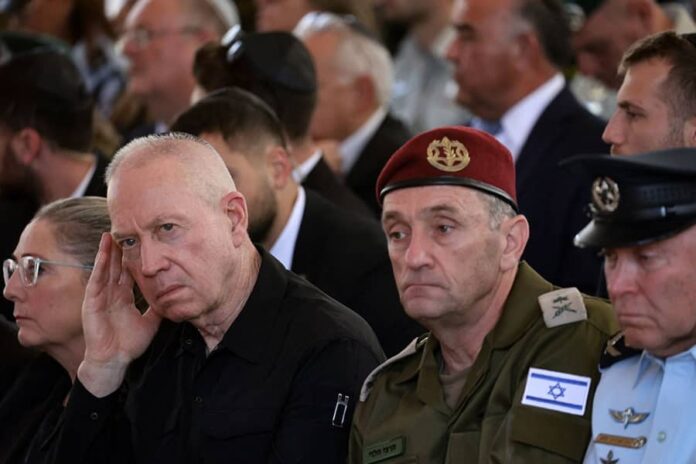Yoav Gallant was well aware that his time as Israel’s Defence Minister was running out. After Prime Minister Benjamin Netanyahu tried to fire him last year but backed off due to massive protests, things between them soured significantly. Since then, they’ve been at odds, especially as the conflict in Gaza stretched into its second year.
There were constant whispers about Gallant being on the chopping block, but he stood his ground, becoming a persistent challenge for Netanyahu. He pushed for a deal regarding hostages in Gaza and often found himself at odds with coalition partners over the military draft for the ultra-Orthodox community.
When he was finally let go on Tuesday, he addressed the nation on TV, speaking about Israel’s struggle through the fog of battle and moral darkness. He urged for the return of hostages, advocated for a draft law concerning the ultra-Orthodox, and called for an inquiry into the failures surrounding October 7th. He concluded his speech with a military salute.
Both Gallant and Netanyahu bear scars from that tragic day when Hamas militants killed around 1,200 people and took over 250 hostages in attacks near Gaza. Gallant even suggested that both he and Netanyahu should be investigated—this comes amid widespread criticism aimed at Netanyahu for not taking responsibility during such a monumental crisis.
Gallant has had numerous run-ins with hardline pro-settler factions led by Finance Minister Bezalel Smotrich and National Security Minister Itamar Ben-Gvir—who wasted no time congratulating Netanyahu after Gallant’s dismissal.
While both men shared hawkish views on dealing with Hamas (and hunting down its former leader Yahya Sinwar), Gallant declared early in the conflict that Gaza would pay a heavy price that would alter realities for generations to come.
He didn’t hold back in describing Israel’s adversaries as human animals while enforcing a strict blockade on Gaza to cut off food and fuel supplies.
However, as time went by during this ongoing war, Gallant seemed increasingly inclined to find an end to hostilities compared to Netanyahu. He became more engaged with families of hostages still trapped in Gaza and suggested weeks ago that it was time to negotiate their return home.
He’s brushed off Netanyahu’s claims of achieving a complete victory over Hamas as “nonsense” and has consistently called on him to outline a strategy for governing Gaza post-conflict.
Meanwhile, he has firmly rejected any idea that the Israeli military could remain in Gaza as an occupying force, which has frustrated figures like Ben-Gvir and Smotrich who are eager to resettle the area.
Both he and Netanyahu are now under the looming threat of an international arrest warrant related to their actions in Gaza—a campaign that has devastated the region and resulted in over 43,000 Palestinian deaths—following a request from the International Criminal Court’s prosecutor back in May.
This potential legal action has sparked outrage within Israel, but much of the political tension since then stems from accountability for the military and security oversights that allowed the October 7 attack to occur.
As for Gallant, his journey began 35 years ago in a naval commando unit, eventually rising through the ranks to become a general before stepping into politics about ten years ago. He took on the role of defense minister when Netanyahu regained power at the end of 2022.
While he’s well-respected by U.S. officials and other international allies of Israel, he seems more at ease interacting with soldiers on the front lines than navigating party politics—often seen wearing one of those black uniform-like shirts since war broke out. In his first statement following his dismissal, he declared that “the security of Israel was, and will always be my life’s mission.”
Now that Israel is embroiled in conflicts on multiple fronts—Gaza, tensions with Hezbollah in Lebanon backed by Iran, and possibly even Iran itself—the timing of his ousting is drawing significant criticism.
Gayil Talshir from Hebrew University noted that after Gallant’s disagreements with Netanyahu over recent issues like conscription laws, it was evident he would eventually be let go; it was just a matter of when—and doing so right before another potential Iranian attack couldn’t have come at a worse time.
The friction between him and Netanyahu dates back at least to mid-last year when there was widespread division over Netanyahu’s attempt to limit Supreme Court powers—a move that sparked massive weekly protests viewed by many as an attack on democracy.
As these protests escalated, Gallant broke away from party lines to publicly oppose this plan, arguing it created such deep societal rifts that it threatened national security.
This led to Netanyahu’s initial attempt to fire him; however, he backed down after hundreds of thousands took to the streets in protest against such actions.

